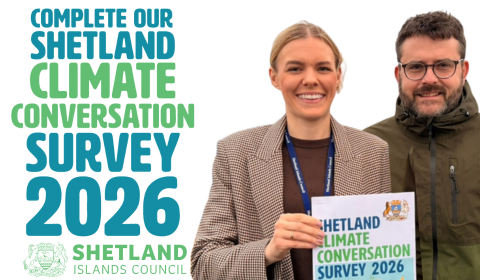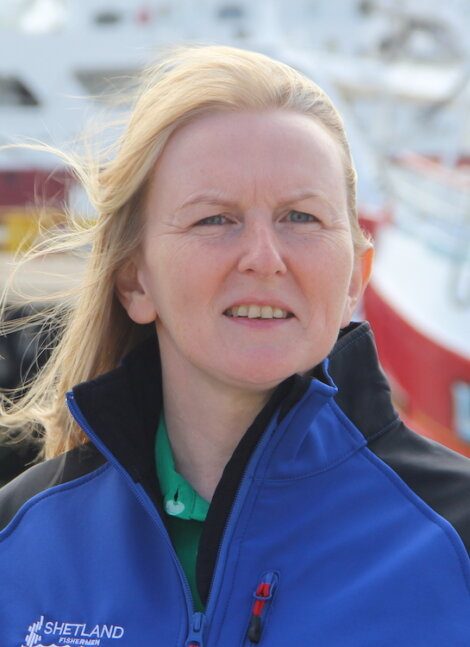Marine / ‘We want to get it right’, Scottish Government says after fishing event criticism
THE SCOTTISH Government says it will consider how it might improve future events following disappointment among the local fishing community over a drop-in session held in Lerwick last week on the subject of marine protected areas (MPAs).
Shetland Fishermen’s Association’s (SFA) Sheila Keith described the event, which discussed proposed new management measures within existing MPAs including closing off fishing, as “not fact-based” and a “missed opportunity”.
She said after years of negotiation with local industry bodies, including submissions from the SFA on why some proposals for areas around Shetland should be scaled back, the association was disappointed to see government agency Marine Scotland had put old maps on display at the event.
But Keith said the following day Marine Scotland then held a meeting with the SFA in which it produced new maps and proposals, which took into account evidence provided by the fishermen’s association.
“We’re in a much better position now than when they first started speaking about this, because we’ve provided the evidence to show why some of these closures are not necessary,” she added.
“But why didn’t they present that on the Wednesday [7 June] night?”
Meanwhile Whalsay fisherman William Polson said after attending the meeting that it appeared to him that a “group of inner-city environmentalists are intent on banning important aspects of our coastal communities’ coexistence with the seas around our shores”.
The event was held on behalf of the Scottish Government and sought to explore the socio-economic impacts of additional management measures in MPAs at sea.
This is separate to the controversial highly protected marine area (HPMAs) proposal from the Scottish Government.
There is a network of over 200 MPAs around Scotland, and they are used to ensure protection of some of the more vulnerable species and habitats found in the country’s waters.
Become a member of Shetland News
Shetland currently has a number of MPAs, including around Fetlar and Mousa.
In addition, there are also some special areas of conservation (SAC), including areas designated for example around Papa Stour and Sullom Voe, and special protection areas (SPA) – although management measures being talked about include fishing methods not used by Shetland’s fishing fleet, for example hydrostatic dredging and long lining.
The government has also identified 11 Priority Marine Features (PMF) in seas around Scotland such as horse mussel (yoags) and maerl beds that it finds worthy of protecting.
Each species has individual descriptors such as size or extent whereby appropriate management measures are set.
The closures which will affect Shetland fishermen, such as scalloping and trawling, sit within existing MPAs, SACs or SPAs, but all PMF designations and subsequent management measures are new.
Creeling fisheries will not be affected by these measures and it is understood that any scallop closures will have to be ratified by the Shetland Shellfish Management Organisation (SSMO).
Keith said the SFA, SSMO and UHI Shetland have been in negotiation with both Marine Scotland and NatureScot on implementation of 14 new proposed management measures since 2018.
“Therefore it was disappointing to arrive at the event to see that the maps showing the proposals had not changed over that period of time despite the presentation of evidence which was exhibited that challenged the need for closures to fishing effort,” she said.
Keith said these maps “misled” the public.
However, the event was well attended with more than 150 folk turning up to give their views.
An online survey has now been released off the back of the event.
Meanwhile Polson said he left the meeting “appalled and astonished” at what was being proposed.
He said in a letter that “environmentalists appear to think they know, how we on the periphery of our nation should live and conduct ourselves regarding the open natural habitat we have lived in all of our lives”.
“Hence, they have been stealthily imposing marine protected areas over vast areas of our islands’ and countries’ fishing grounds and are now moving on to the next step of imposing stricter controls on those areas around our shores,” he added.
Keith said, however, that the day after the event Marine Scotland met with the fishermen’s association to show revised maps.
The association’s executive officer added through that the team has “mitigated it back to where there is a specific need for conservation”.
Negotiations are still ongoing around four areas.
She said MPAs have been in place in Shetland, some since 1986, and s
ome since 2014, and the current discussions are around implementing management measures in already designated MPAs; a separate issue from the proposed HPMAs which are strongly opposed by the industry.
Keith added that the proposed new management measures include closure to fishing within areas.
She said the event was “badly advertised – nobody knew what they were coming to”.
“The fishermen are responsible people at the end of the day – if there’s a need for a conservation measure, they’ll adopt it,” Keith added.
“But any closure will impact on our community and impact on their viability, so if it’s not evidence based, why should they be doing it?”
She said it is a “slippery slope” when things are “target driven and not evidence driven”.
In response a Scottish Government spokesperson said: “We welcome this helpful feedback from Shetland Fishermen’s Association on our engagement process and will consider how we might improve future events.
“We are very grateful to the association for all its input to this vital work to develop measures which better manage Scotland’s inshore and offshore fisheries.
“We want to get it right – to better protect marine areas where that needs to happen, and also ensure that fishing opportunities can continue.
“Hearing the views, experience and knowledge of stakeholders like the Association matters, and so too does hearing from the wider public.
“That is what these public drop in sessions aim to facilitate so we can all better understand how coastal and island communities value their marine environment and how any proposed measures would impact on them.
“There will be a further opportunity for everyone to have their say on any future firm proposals when these are published.”
Become a member of Shetland News
Shetland News is asking its readers to consider paying for membership to get additional perks:
- Removal of third-party ads;
- Bookmark posts to read later;
- Exclusive curated weekly newsletter;
- Hide membership messages;
- Comments open for discussion.
If you appreciate what we do and feel strongly about impartial local journalism, then please become a member of Shetland News by either making a single payment, or setting up a monthly, quarterly or yearly subscription.































































